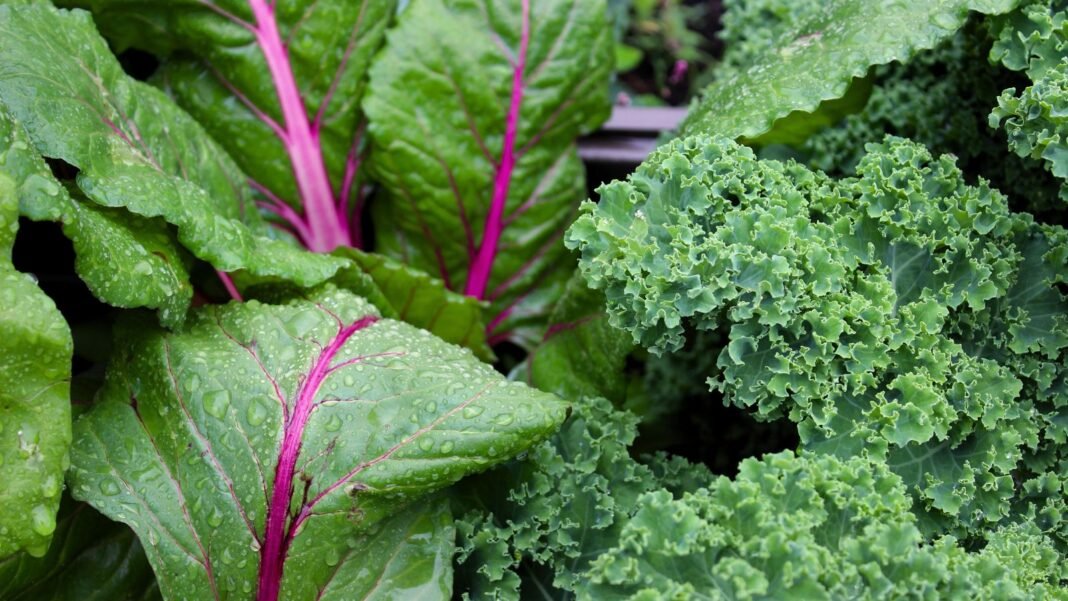The very last thing you wish to do to your balcony is stuff it with large beds! Container gardening is an effective way to each benefit from the area and develop crops. Containers don’t take up the entire balcony. They match into tight corners and are simple to maneuver round.
Within the fall, the climate cools and days shorten. These situations are ripe for fall crops. Leafy greens, root greens, and quick-growing legumes thrive beneath the season’s cool climate. It’s not the time for tomatoes and corn, although it’s the time for dozens of different vegetable crops.
Whether or not you’re beginning seeds or planting begins, these fall vegetable container mixtures work properly for all container gardens. Strive them in an house, condominium, or balcony open air. Lower your expenses on the grocery retailer and develop lettuce, carrots, herbs, kale, and extra!
Lettuce, Beets, and Herbs
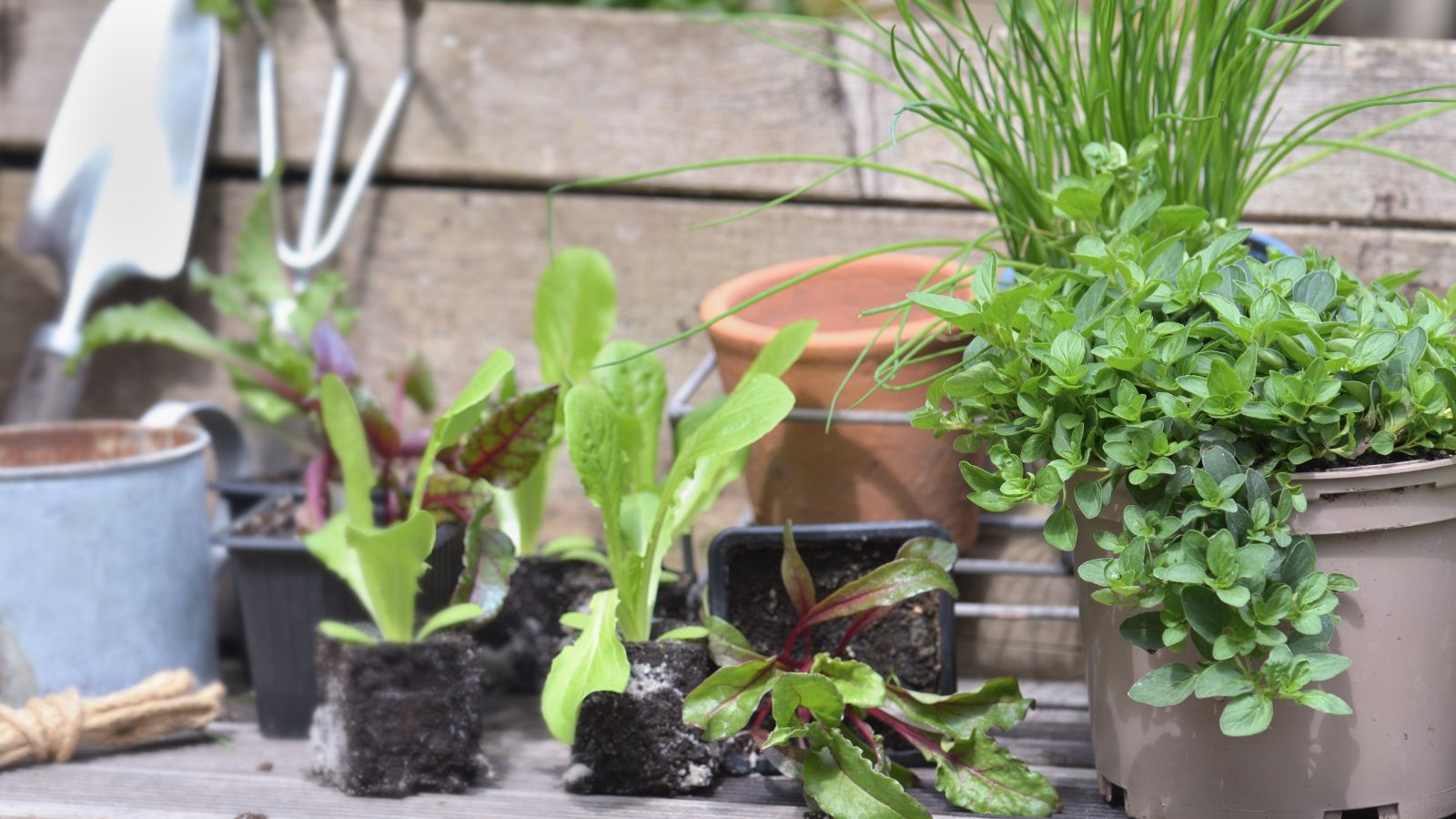
Lettuce loves rising beneath the cool of fall. Seedlings kind many leaves, and the heading varieties kind thick, crunchy heads. Alongside your lettuce, beets take up area beneath the soil. They complement lettuce’s rising habits.
For the areas in between the 2 crops, add frequent herbs like oregano and chives. Chives are perennial, they usually have inexperienced onion-like leaves with gentle, honey-sweet flavors. Oregano is important in seasoning mixes, and the plant itself can also be perennial.
Pair one in every of every in a small container, or develop many seedlings in a big one. Think about using different cool-weather herbs, like cilantro and parsley, in the event you’d quite use them as a substitute of oregano and chives.
Chard and Carrots
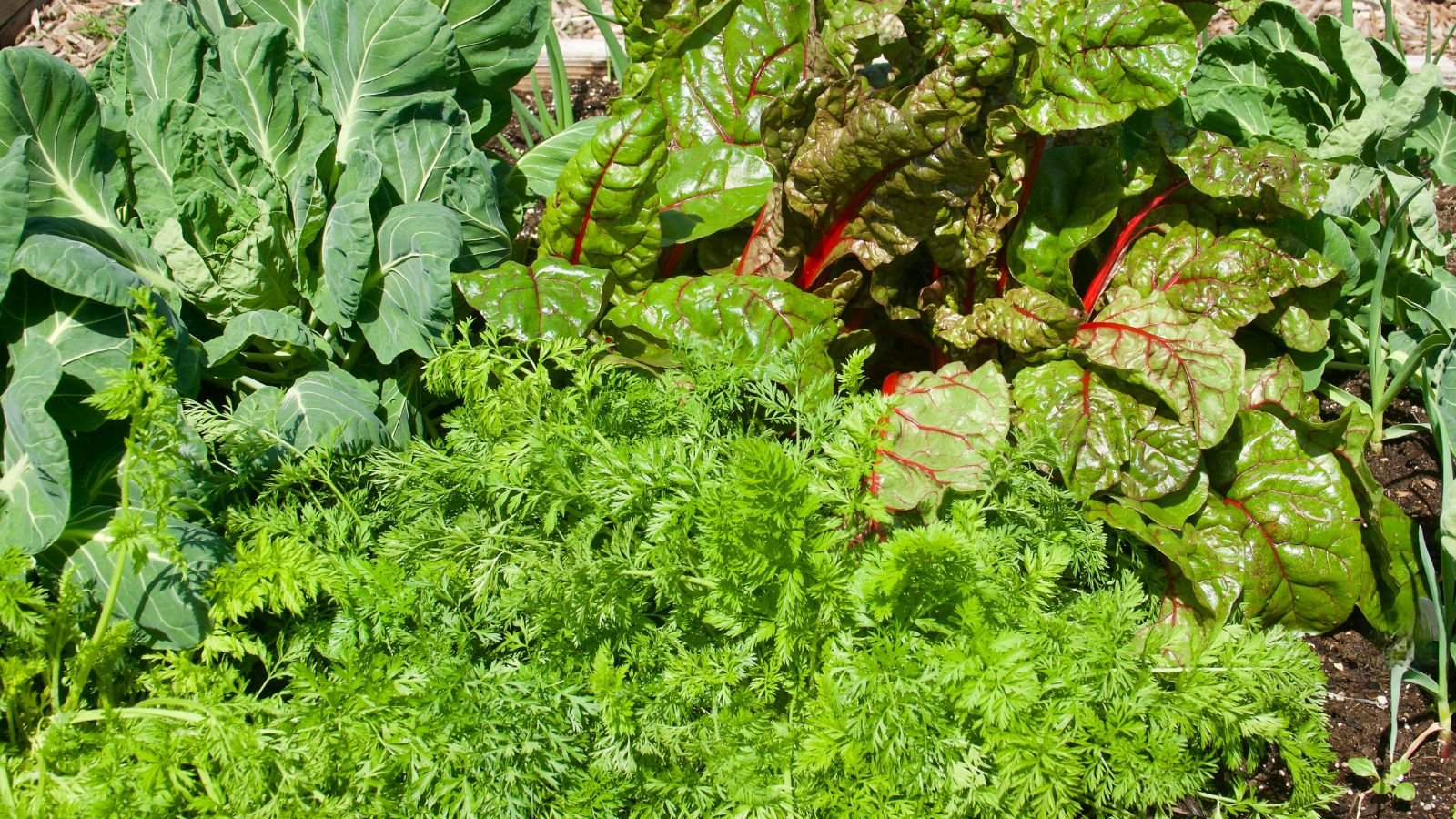
This fall pairing combines a leafy inexperienced with a root crop. It’s the most effective fall vegetable container mixtures, as carrots take up the area that chard leaves. They develop a thick, swollen root, whereas chard grows upright, collard-like leaves which might be shiny inexperienced.
Chard is beautiful, too. It options leaves with ribs of all colours. Discover varieties which might be orange, white, yellow, pink, and crimson! Swiss chard reseeds readily, and also you’ll discover it sprouting in close by containers in the event you let it flower.
Carrots develop finest beneath the cool of fall, winter, or spring. They require an enormous container no less than a foot deep. You probably have a small container, strive the spherical carrot-forming selection ‘Tonda di Parigi.’ Or, take into account rising the shallow carrot ‘Little Finger.’
Bloody Sorrel and Lettuce
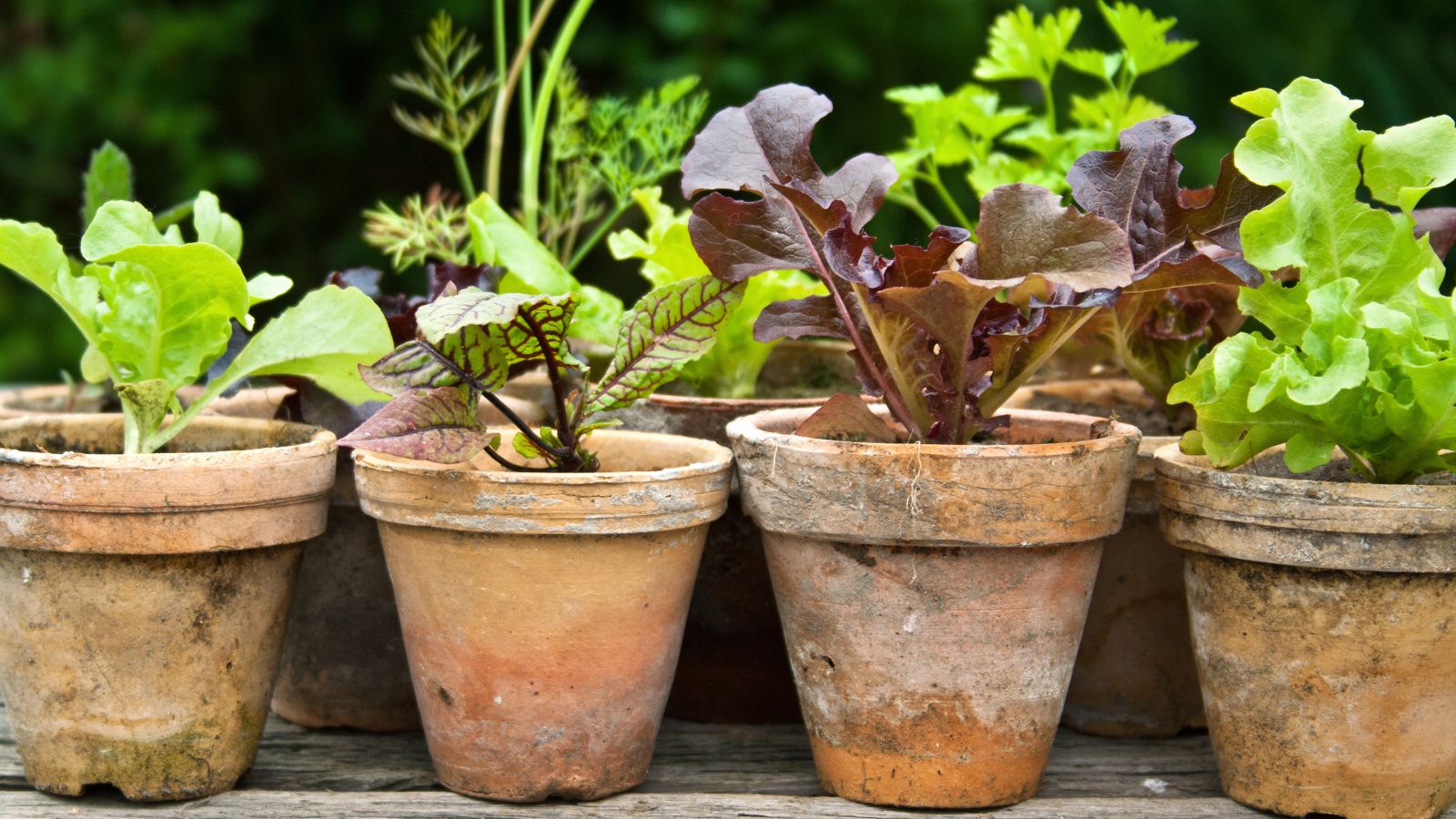
Bloody sorrel is a beautiful leafy inexperienced vegetable. It’s typically the principle salad in wonderful eating dishes, as its crimson veins look gorgeous within the inexperienced leaves. Use it as a child inexperienced for the most effective taste.
Pair bloody sorrel with lettuce in all kinds of mixtures to make the salad of your desires. Strive a loose-leaf lettuce selection, as you may harvest its leaves constantly in the course of the fall season. Additionally, loose-leaf lettuces require much less area than heading varieties.
Lettuce is an annual, whereas bloody sorrel is perennial from USDA hardiness zones 4 by way of 8. It’ll survive by way of to the spring. When new sprouts seem, sow lettuce seeds to recreate the mixture.
This sorrel, identified scientifically as Rumex sanguineus, incorporates oxalic acid. It could be a priority if consumed in giant portions. That’s why mixing it with lettuce is an effective way to place it to make use of to keep away from the unintended effects of overconsumption.
Chives and Parsley
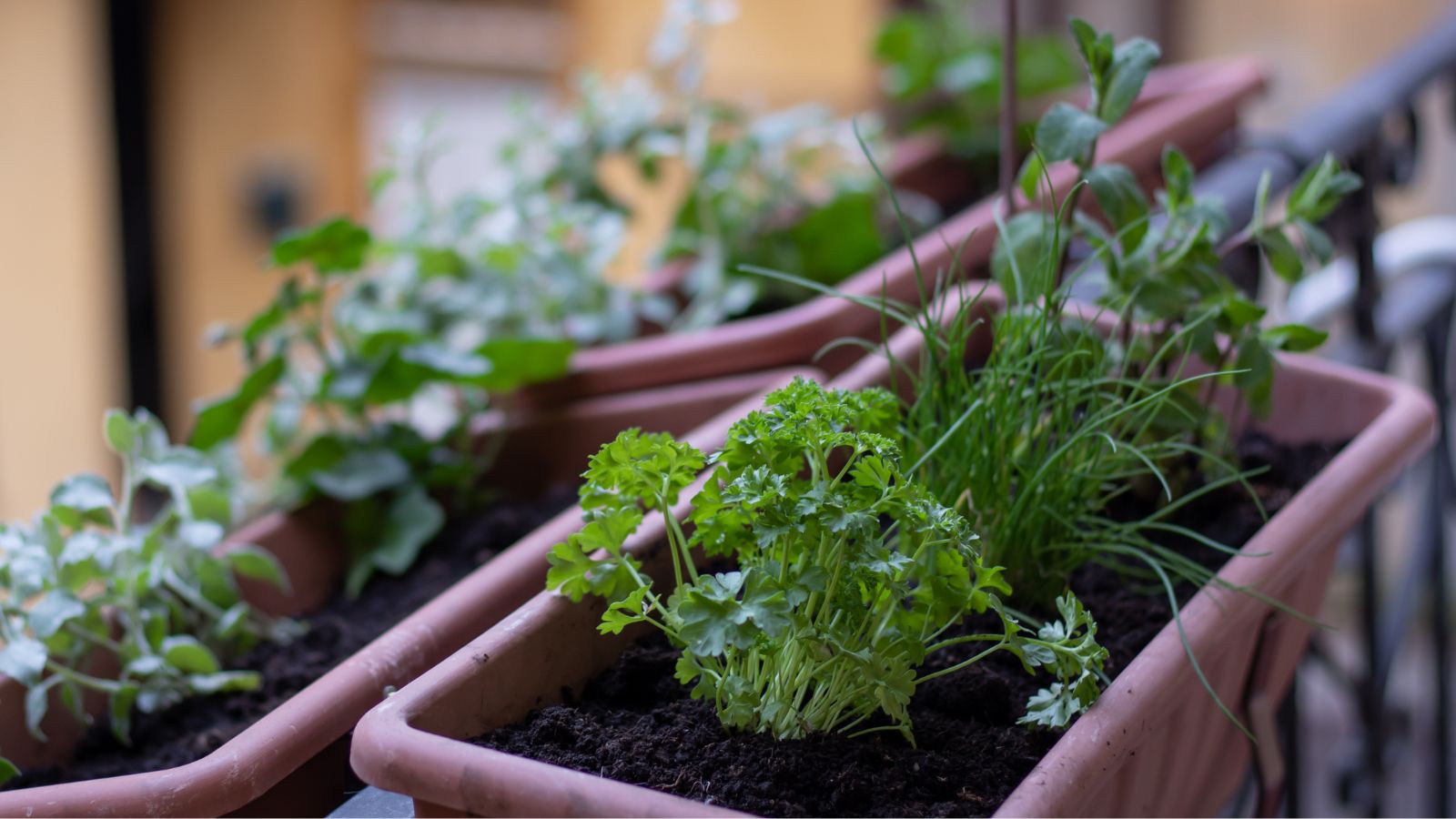
Chives are in the identical genus as onions, which is why they give the impression of being and style related. Chives have thinner leaves than onions, and their taste is milder than the pungent bulbs. They’re perennial, too, they usually’ll survive 12 months to 12 months.
Parsley is a biennial herb, and it pairs properly with chives in a container and in recipes. Use parsley and chives in vegetable roasts, tomato sauces, and meats. They’re an iconic duo with complementary flavors.
On house balconies, parsley could reseed itself if left to develop. It’s a biennial that grows leaves one 12 months and flowers and seeds the subsequent. Harvest the leaves, then depart the stalks to flower and set seeds. They’ll fall again into the containers and sprout anew with moisture and funky climate.
Kale and Chard
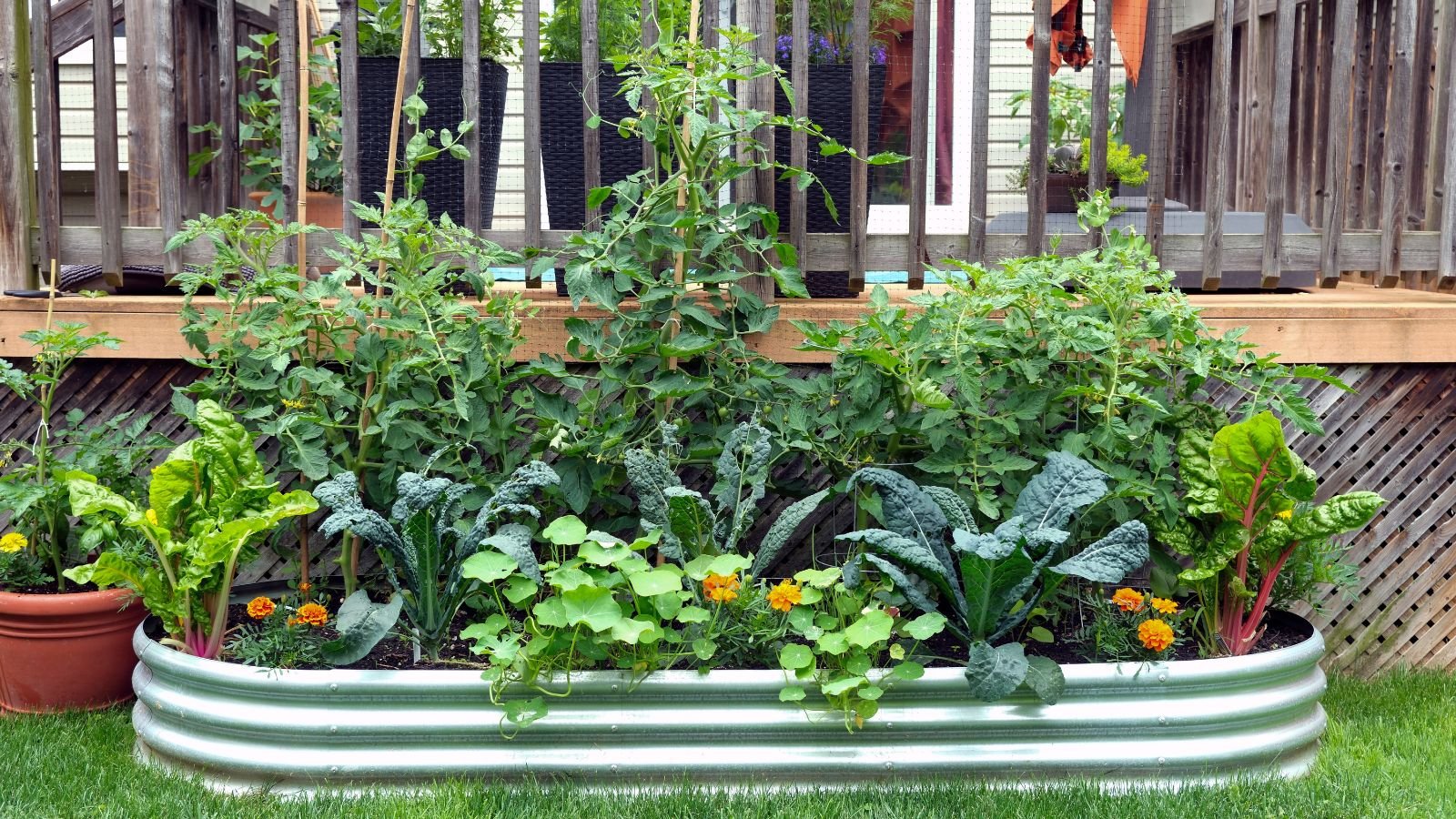
Kale and Swiss chard are hearty crops, they usually’re the most effective fall vegetable container mixtures in the event you plan on cooking greens. This pairing could appear like it wants numerous area, but it surely’ll slot in a small container! A ten-inch spherical pot will do, although a raised mattress works properly too.
Kale and chard thrive with the cool, moist climate of the autumn season. They’ll develop properly excessive up on balconies, and they want little area to supply a large crop.
Merely plant seeds or seedlings in containers with contemporary potting soil, and maintain the dust moist, however not soggy. Snip the outermost leaves of each varieties when you’ll want to use them, and let the innermost ones enlarge and take their place.
Kale and Scallions
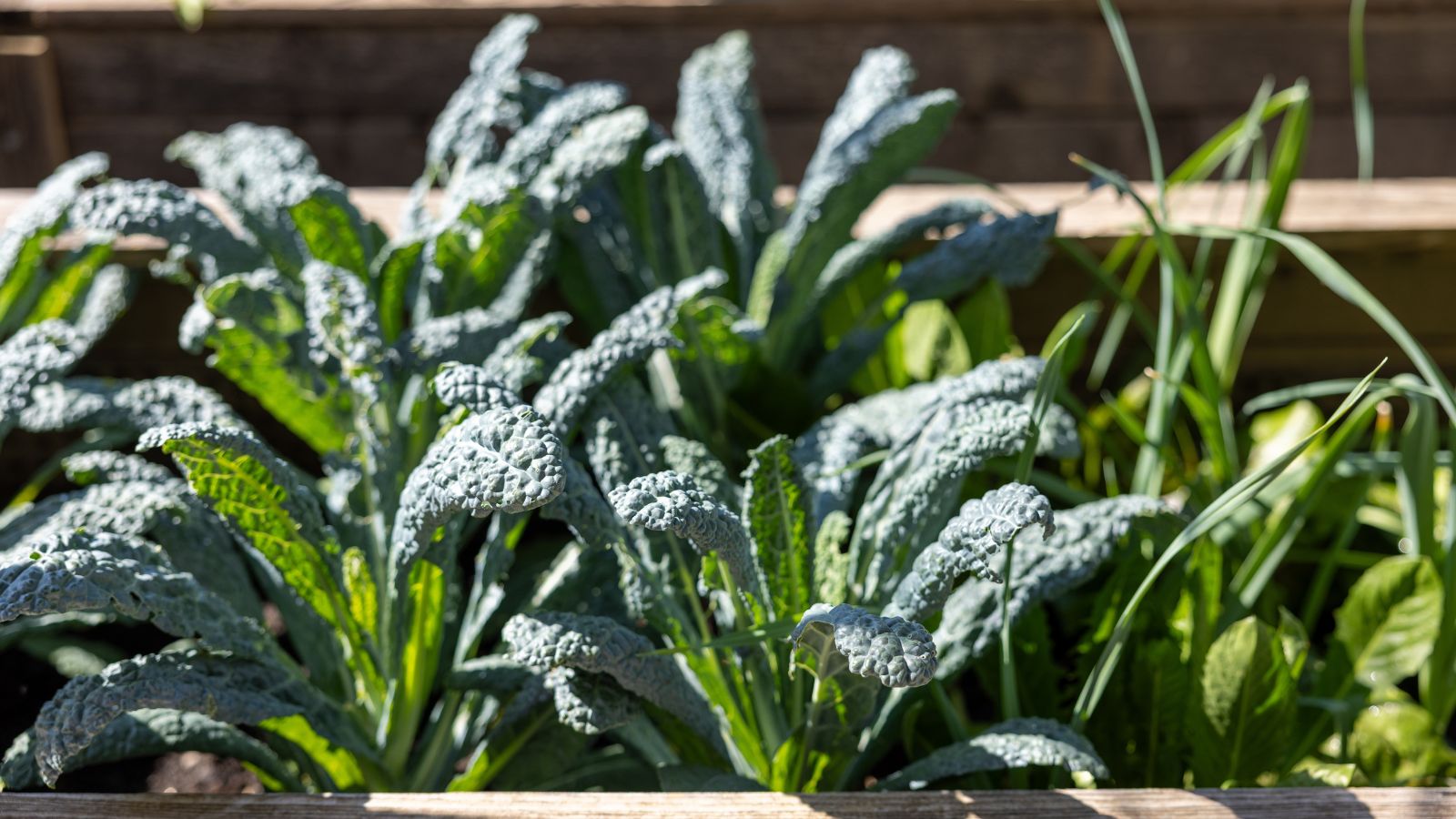
Scallions, or inexperienced onions, are important for contemporary dishes. They add a refined crunch and a punch of gentle onion taste. Snip them in salads, ramen soups, and minimize them complete in sandwiches.
Alongside scallions, plant kale as a base vegetable. It really works properly contemporary or cooked, and there are lots of varieties out there apart from ‘Lacinato,’ or ‘Dinosaur’ kale. Strive red-leaf, frilly, or white varieties.
Kale is frost-tolerant, whereas scallions could not survive the winter. Harvest them typically by snipping their leaves. Then, earlier than the primary frost, transfer the scallions indoors to a kitchen windowsill to maintain them going.
Spinach, Radish, and Mustard
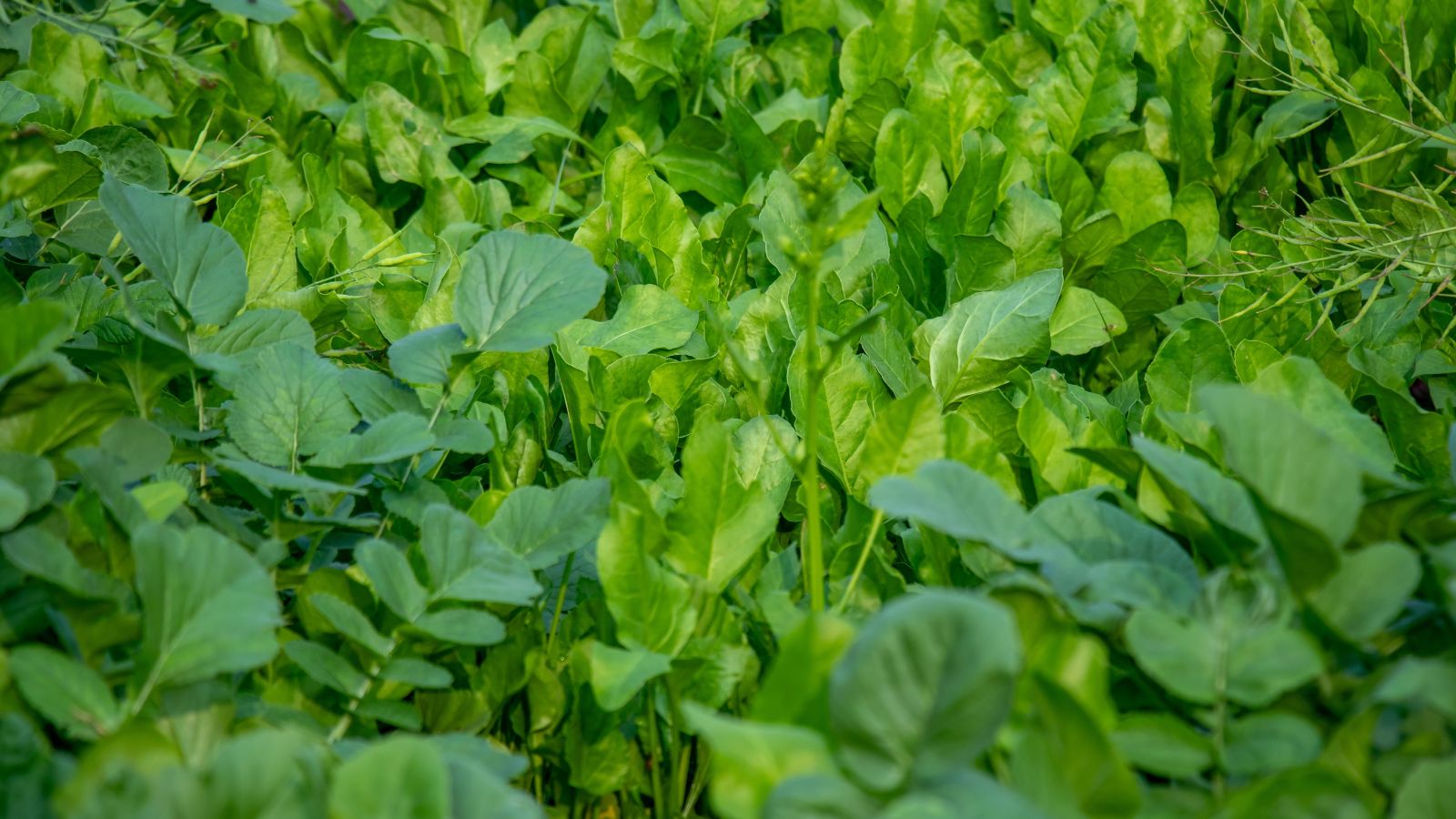
This remaining group is among the spiciest fall vegetable container mixtures! It pairs radish, a root vegetable, with spinach and mustard, two greens. The three crops create the proper base for a easy salad that packs a punch.
Flavorful, nutritious, and scrumptious, these three crops are excellent for house balconies. Radishes require much less area to develop than different root vegetable species. Spinach is a fast grower, and it’s possible you’ll reseed it steadily all through the top of the rising season.
Mustard can also be frost-tolerant, relying on the variability. Strive ‘Florida Broadleaf’ for a large-leaf selection with thick foliage, or go for the luxurious, colourful selection ‘Crimson Big.’
